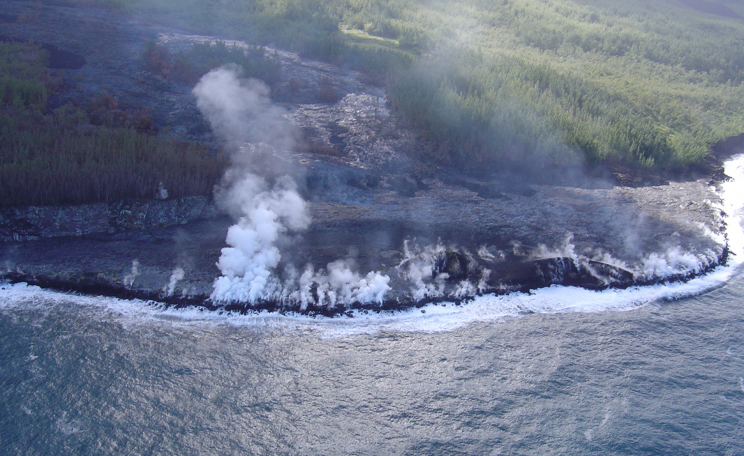The food we eat, that’s ecosystems. Climate regulation, that’s ecosystems... if ecosystems go, we go.
Senior ecologists call for an ecosystem approach as the only way to halt the vanishing of UK wildlife and, critically, protect the ecosystem services that nature provides.
A new report today by the British Ecological Society and National Trust makes clear that human wellbeing over the coming years and decades will not depend on the extinction or abundance of particular wild species in particular places, but on ecosystems continuing to function in a resilient way.
The expert authors of the Aligning Environmental Agendas for Nature Recovery report see COP30 as a key opportunity for policymakers to align siloed policies tackling climate, nature, human health and prosperity. “It’s hard to think of anything more important” comments Professor Sir John Lawton in his Foreword.
Livelihoods
Despite some conservation successes for individual species, fragmented strategies aren’t big picture enough: one in six species is threatened with extinction in the UK. This threatens the critical ecosystem services upon which society is built upon.
In recent years, UK governments have launched several initiatives to support nature recovery including committing to legally binding targets in the Environment Act. However, these plans focus on disconnected elements of ecosystems (such as species, water quality, carbon) rather than on the whole dynamic picture.
An ecosystem approach to nature recovery implicitly includes people and complements species and habitat conservation by considering the whole ecological ‘system’, including human activities.
Professor Nathalie Pettorelli OBE at the Institute of Zoology, ZSL, and lead author of the report said, “The food we eat, that’s ecosystems. Climate regulation, that’s ecosystems. Protection from extreme weather events, that’s ecosystems. To put it simply, if ecosystems go, we go.”
In Lyme Bay, Dorset, the protection of the rocky reef was integrated into management plans for the whole area, including the activities and livelihoods of local people, through measures such as a fisheries management plan.
Housing
In the seven years following the implementation of this ecosystem approach, there was a 95% increase in the total abundance marine organisms. By contrast, a nearby Special Area of Conservation that used only a feature-based management approach, saw recovery of just 15%.
Restoration projects on the River Wensum in Norfolk took an ecosystem approach and incorporated riparian zone restoration, agricultural land management and, by considering both people and nature, resulted in significant improvements in water quality, fish populations and invertebrate diversity, alongside benefits for farming communities and recreational users.
Report author Dr Martin Wilkes at the University of Essex, said, “The improvements to river health could not have been achieved through isolated conservation actions. In freshwater environments, the connectivity is clear, what happens upstream impacts what happens downstream.”
The food we eat, that’s ecosystems. Climate regulation, that’s ecosystems... if ecosystems go, we go.
Professor Rosie Hails MBE, Director of Nature & Science at The National Trust and chair of the Defra Biodiversity Expert Committee, said, “I’d like to see Defra really leading the charge on an ecosystem approach in England.
"It’s the department of food, environment and rural affairs and this is in some ways the rural affairs part of their remit, which you hear relatively little about. But this work needs to cut across government departments with Defra connecting up the departments for transport, health and housing.”
Embed
COP30 is expected to finally give more prominence to ecosystems in climate talks, providing a window of opportunity to embed ecosystem approaches in climate and nature strategies.
Ian Dickie Director at Economics For The Environment Consultancy, said, “A key hurdle to funding ecosystem approaches is that we don’t value our natural assets in our national accounting.
"Take a woodland. This is an asset that’s helpful to society, it improves air quality, regulates water flow and provides places for recreation to keep us healthy, but we don't measure any of that in our GDP figures. It’s invisible to many decision-makers.
“If we destroy that woodland, there's no record of the loss in the national economic data. But if we turn it into something else, that value is recorded, so our data says we’ve got wealthier and had economic growth, so are better off. But we may not be. We've just exchanged an asset we don't measure for an asset we do. Sometimes we're just tricking ourselves.”
COP30 is expected to finally give more prominence to ecosystems in climate talks, providing a window of opportunity to embed ecosystem approaches in climate and nature strategies.
Wins
Ian Dickie said, “At COP we want to see our climate targets being achieved, but these need to be done in tandem with delivering healthy, resilient ecosystems.
"So far, we've pursued short-term economic consumption targets at the expense of a healthy climate. We can’t make the same mistake again and pursue climate targets at the expense of the health of ecosystems.”
Martin Wilkes said: “For too long the climate and nature crises have been seen as separate things with polices and solutions often siloed. COP30 is a key opportunity to see these as linked problems.
"Trade-offs between climate and nature solutions can be avoided by countries updating their climate strategies to include an ecosystem approach, delivering wins on multiple fronts.”
This Author
Brendan Montague is an editor of The Ecologist.







